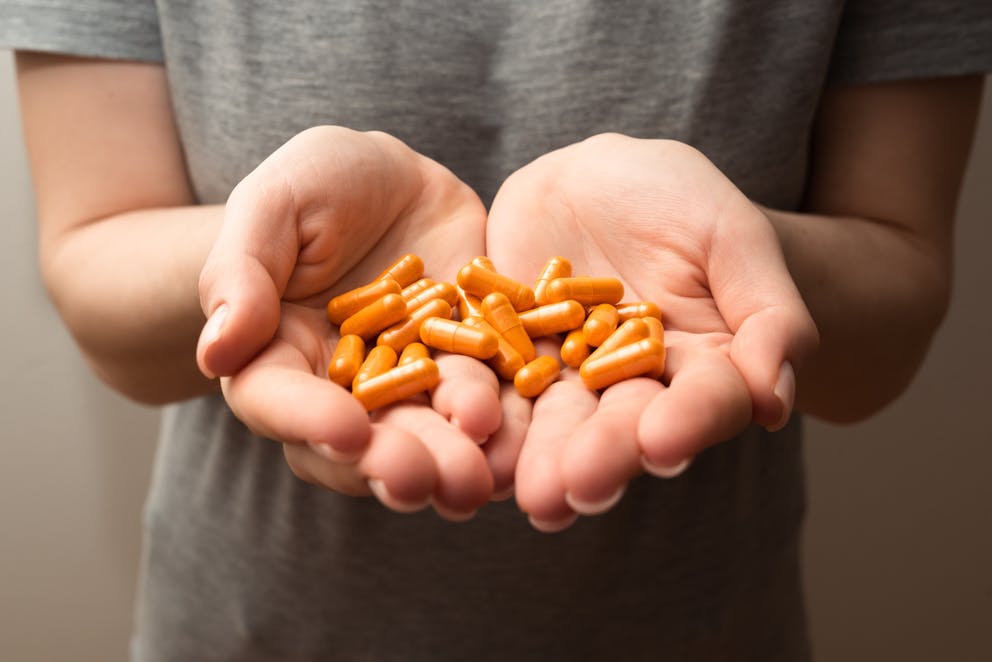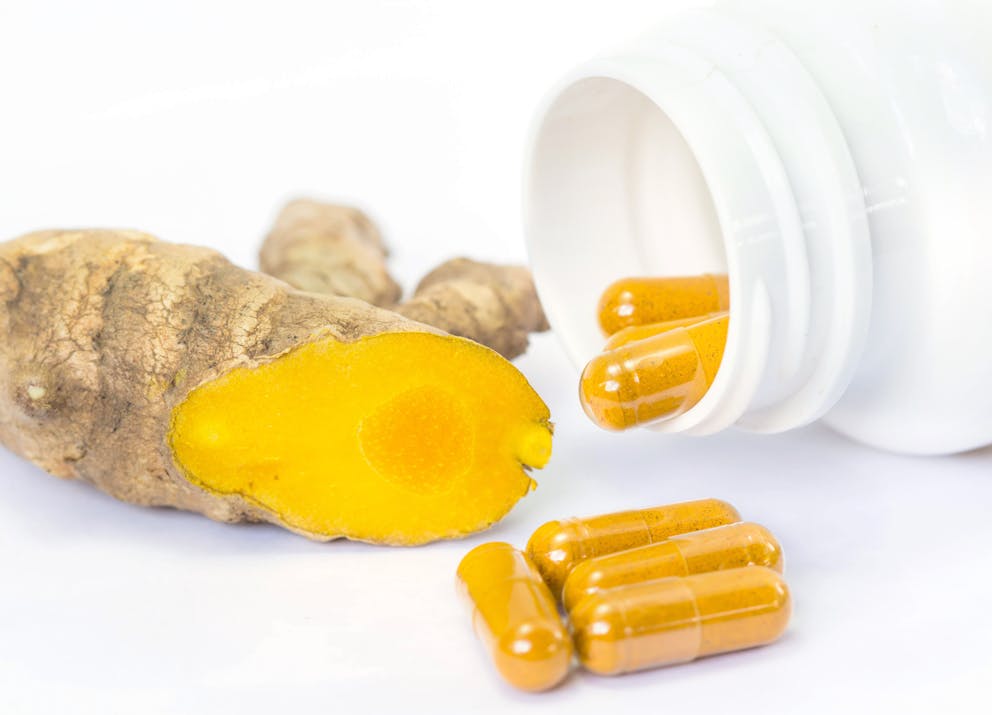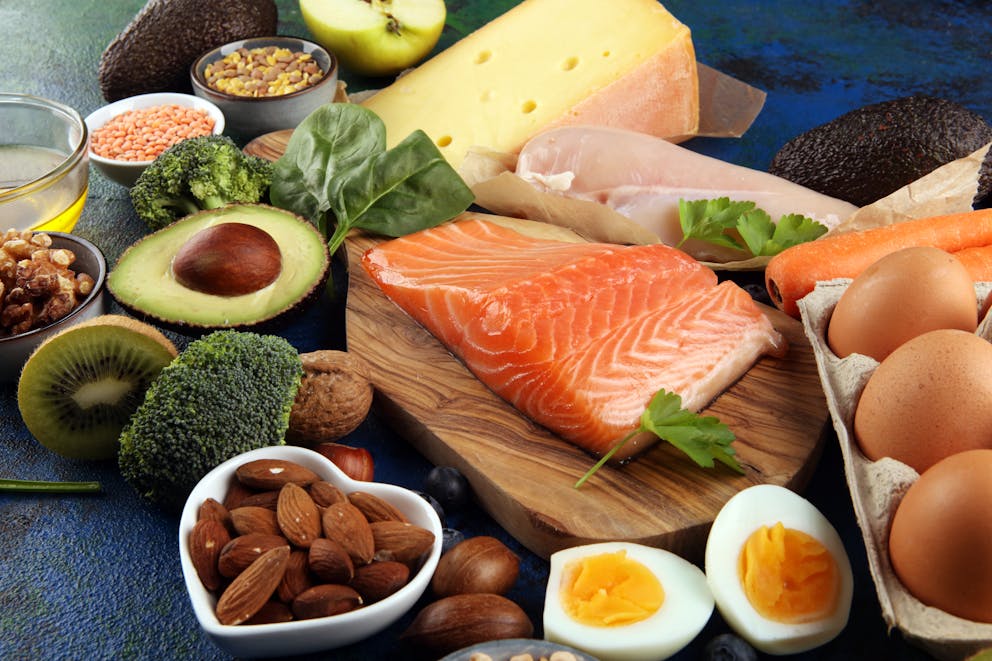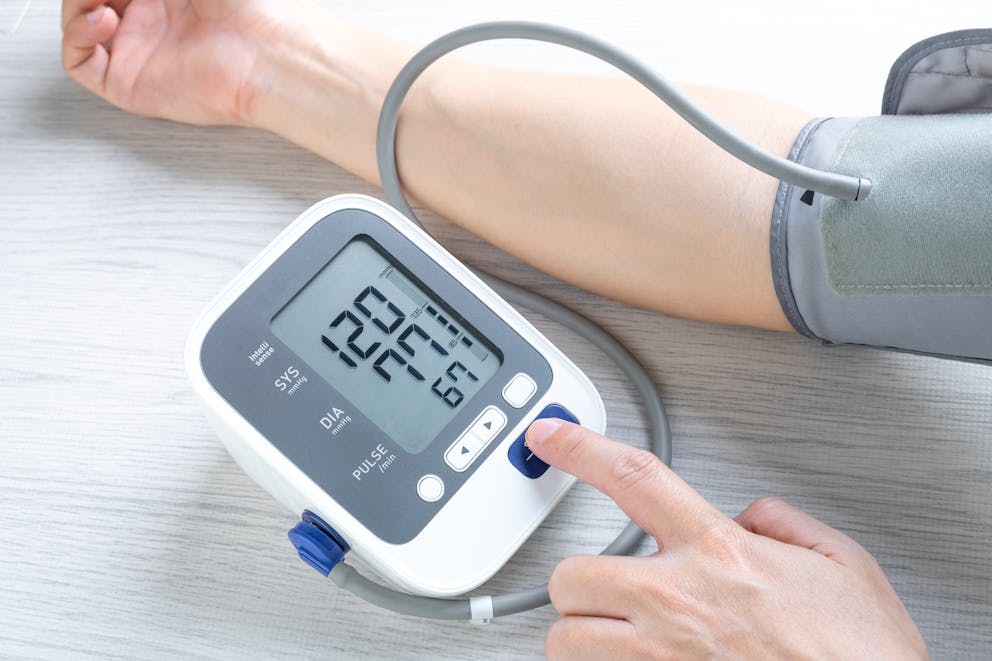Does Turmeric Lower Blood Pressure? Curcumin for Hypertension

25 Top Supplements That Really Work
Discover the most effective supplements to promote a healthy body
Learn about key supplements to support digestion, brain function, energy, and more
Understand how to manage common health issues with specific supplements

25 Top Supplements That Really Work
Discover the most effective supplements to promote a healthy body
Learn about key supplements to support digestion, brain function, energy, and more
Understand how to manage common health issues with specific supplements

25 Top Supplements That Really Work
Discover the most effective supplements to promote a healthy body
Learn about key supplements to support digestion, brain function, energy, and more
Understand how to manage common health issues with specific supplements

25 Top Supplements That Really Work
Discover the most effective supplements to promote a healthy body
Learn about key supplements to support digestion, brain function, energy, and more
Understand how to manage common health issues with specific supplements

25 Top Supplements That Really Work
Discover the most effective supplements to promote a healthy body
Learn about key supplements to support digestion, brain function, energy, and more
Understand how to manage common health issues with specific supplements

25 Top Supplements That Really Work
Discover the most effective supplements to promote a healthy body
Learn about key supplements to support digestion, brain function, energy, and more
Understand how to manage common health issues with specific supplements

25 Top Supplements That Really Work
Discover the most effective supplements to promote a healthy body
Learn about key supplements to support digestion, brain function, energy, and more
Understand how to manage common health issues with specific supplements

25 Top Supplements That Really Work
Discover the most effective supplements to promote a healthy body
Learn about key supplements to support digestion, brain function, energy, and more
Understand how to manage common health issues with specific supplements

25 Top Supplements That Really Work
Discover the most effective supplements to promote a healthy body
Learn about key supplements to support digestion, brain function, energy, and more
Understand how to manage common health issues with specific supplements

25 Top Supplements That Really Work
Discover the most effective supplements to promote a healthy body
Learn about key supplements to support digestion, brain function, energy, and more
Understand how to manage common health issues with specific supplements

25 Top Supplements That Really Work
Discover the most effective supplements to promote a healthy body
Learn about key supplements to support digestion, brain function, energy, and more
Understand how to manage common health issues with specific supplements

25 Top Supplements That Really Work
Discover the most effective supplements to promote a healthy body
Learn about key supplements to support digestion, brain function, energy, and more
Understand how to manage common health issues with specific supplements

25 Top Supplements That Really Work
Discover the most effective supplements to promote a healthy body
Learn about key supplements to support digestion, brain function, energy, and more
Understand how to manage common health issues with specific supplements

25 Top Supplements That Really Work
Discover the most effective supplements to promote a healthy body
Learn about key supplements to support digestion, brain function, energy, and more
Understand how to manage common health issues with specific supplements

25 Top Supplements That Really Work
Discover the most effective supplements to promote a healthy body
Learn about key supplements to support digestion, brain function, energy, and more
Understand how to manage common health issues with specific supplements

25 Top Supplements That Really Work
Discover the most effective supplements to promote a healthy body
Learn about key supplements to support digestion, brain function, energy, and more
Understand how to manage common health issues with specific supplements

25 Top Supplements That Really Work
Discover the most effective supplements to promote a healthy body
Learn about key supplements to support digestion, brain function, energy, and more
Understand how to manage common health issues with specific supplements

25 Top Supplements That Really Work
Discover the most effective supplements to promote a healthy body
Learn about key supplements to support digestion, brain function, energy, and more
Understand how to manage common health issues with specific supplements

25 Top Supplements That Really Work
Discover the most effective supplements to promote a healthy body
Learn about key supplements to support digestion, brain function, energy, and more
Understand how to manage common health issues with specific supplements

25 Top Supplements That Really Work
Discover the most effective supplements to promote a healthy body
Learn about key supplements to support digestion, brain function, energy, and more
Understand how to manage common health issues with specific supplements

How to Read Your Body
Learn to recognize common symptoms and uncover their underlying health issues
Understand the signs of nutrient deficiencies to manage your health
Explore the four metabolic body types and the core factors that influence them
Interpret your body's signals from head to toe to identify potential health concerns

How to Read Your Body
Learn to recognize common symptoms and uncover their underlying health issues
Understand the signs of nutrient deficiencies to manage your health
Explore the four metabolic body types and the core factors that influence them
Interpret your body's signals from head to toe to identify potential health concerns

How to Read Your Body
Learn to recognize common symptoms and uncover their underlying health issues
Understand the signs of nutrient deficiencies to manage your health
Explore the four metabolic body types and the core factors that influence them
Interpret your body's signals from head to toe to identify potential health concerns

How to Read Your Body
Learn to recognize common symptoms and uncover their underlying health issues
Understand the signs of nutrient deficiencies to manage your health
Explore the four metabolic body types and the core factors that influence them
Interpret your body's signals from head to toe to identify potential health concerns

How to Read Your Body
Learn to recognize common symptoms and uncover their underlying health issues
Understand the signs of nutrient deficiencies to manage your health
Explore the four metabolic body types and the core factors that influence them
Interpret your body's signals from head to toe to identify potential health concerns

How to Read Your Body
Learn to recognize common symptoms and uncover their underlying health issues
Understand the signs of nutrient deficiencies to manage your health
Explore the four metabolic body types and the core factors that influence them
Interpret your body's signals from head to toe to identify potential health concerns

How to Read Your Body
Learn to recognize common symptoms and uncover their underlying health issues
Understand the signs of nutrient deficiencies to manage your health
Explore the four metabolic body types and the core factors that influence them
Interpret your body's signals from head to toe to identify potential health concerns

How to Read Your Body
Learn to recognize common symptoms and uncover their underlying health issues
Understand the signs of nutrient deficiencies to manage your health
Explore the four metabolic body types and the core factors that influence them
Interpret your body's signals from head to toe to identify potential health concerns

How to Read Your Body
Learn to recognize common symptoms and uncover their underlying health issues
Understand the signs of nutrient deficiencies to manage your health
Explore the four metabolic body types and the core factors that influence them
Interpret your body's signals from head to toe to identify potential health concerns

How to Read Your Body
Learn to recognize common symptoms and uncover their underlying health issues
Understand the signs of nutrient deficiencies to manage your health
Explore the four metabolic body types and the core factors that influence them
Interpret your body's signals from head to toe to identify potential health concerns

How to Read Your Body
Learn to recognize common symptoms and uncover their underlying health issues
Understand the signs of nutrient deficiencies to manage your health
Explore the four metabolic body types and the core factors that influence them
Interpret your body's signals from head to toe to identify potential health concerns

How to Read Your Body
Learn to recognize common symptoms and uncover their underlying health issues
Understand the signs of nutrient deficiencies to manage your health
Explore the four metabolic body types and the core factors that influence them
Interpret your body's signals from head to toe to identify potential health concerns

How to Read Your Body
Learn to recognize common symptoms and uncover their underlying health issues
Understand the signs of nutrient deficiencies to manage your health
Explore the four metabolic body types and the core factors that influence them
Interpret your body's signals from head to toe to identify potential health concerns

How to Read Your Body
Learn to recognize common symptoms and uncover their underlying health issues
Understand the signs of nutrient deficiencies to manage your health
Explore the four metabolic body types and the core factors that influence them
Interpret your body's signals from head to toe to identify potential health concerns

How to Read Your Body
Learn to recognize common symptoms and uncover their underlying health issues
Understand the signs of nutrient deficiencies to manage your health
Explore the four metabolic body types and the core factors that influence them
Interpret your body's signals from head to toe to identify potential health concerns

How to Read Your Body
Learn to recognize common symptoms and uncover their underlying health issues
Understand the signs of nutrient deficiencies to manage your health
Explore the four metabolic body types and the core factors that influence them
Interpret your body's signals from head to toe to identify potential health concerns

How to Read Your Body
Learn to recognize common symptoms and uncover their underlying health issues
Understand the signs of nutrient deficiencies to manage your health
Explore the four metabolic body types and the core factors that influence them
Interpret your body's signals from head to toe to identify potential health concerns

How to Read Your Body
Learn to recognize common symptoms and uncover their underlying health issues
Understand the signs of nutrient deficiencies to manage your health
Explore the four metabolic body types and the core factors that influence them
Interpret your body's signals from head to toe to identify potential health concerns

How to Read Your Body
Learn to recognize common symptoms and uncover their underlying health issues
Understand the signs of nutrient deficiencies to manage your health
Explore the four metabolic body types and the core factors that influence them
Interpret your body's signals from head to toe to identify potential health concerns

How to Read Your Body
Learn to recognize common symptoms and uncover their underlying health issues
Understand the signs of nutrient deficiencies to manage your health
Explore the four metabolic body types and the core factors that influence them
Interpret your body's signals from head to toe to identify potential health concerns
Does turmeric lower blood pressure? Yes, evidence suggests that curcumin, a potent polyphenol in turmeric, can help dilate blood vessels, promote increased blood flow, and may lower the risk of hypertension.
Let’s look at how curcumin can help regulate blood pressure levels and discover how to incorporate turmeric into your daily routine.

How does turmeric lower blood pressure?
Turmeric, or Curcuma longa, is a relative of the ginger family. This medicinal herb is a rich source of curcumin, a potent bioactive compound that has been used to promote healthy blood pressure for centuries.
Turmeric root has anti-inflammatory and antioxidant properties that can counteract the detrimental effects of free radicals and oxidative stress on the cardiovascular system, which is linked to better blood pressure control and vascular health.
In addition to its cardiovascular benefits, curcumin has also been studied for its potential to prevent and manage various chronic health conditions such as obesity, metabolic syndrome, and rheumatoid arthritis, all of which are known risk factors for hypertension.
Furthermore, taking curcumin may increase the production of nitric oxide, a powerful vasodilator that helps relax blood vessels and improves blood pressure regulation.
Evidence published by Molecules also discovered that curcumin exhibits anti-atherosclerotic properties that can inhibit or slow down the buildup of plaques in arteries.
Preventing the development of atherosclerosis promotes arterial health and is linked to a reduced risk of hypertension, blood clots, and other vascular health issues.
Watch the video below to discover the amazing health benefits of turmeric.
Amazing Health Benefits of Turmeric
How long does it take to see the results?
A study published by Nutrition, Metabolism, and Cardiovascular Diseases suggests that curcumin supplementation shows beneficial effects on blood pressure control when consistently taken for 12 weeks or longer.
The authors reported that curcumin intake was associated with a considerable reduction in both systolic blood pressure (SBP) and diastolic blood pressure (DBP) in women.
How to use turmeric for hypertension
There are various ways to consume turmeric for hypertension, such as taking it as a supplement or adding it to your meals.
Curcumin supplements have become increasingly popular and are widely available in the form of capsules, tablets, powders, and liquid extracts.
When choosing a turmeric supplement, opt for a high-quality product that contains at least 95 percent curcuminoids and is formulated with piperine, a black pepper extract that enhances intestinal curcumin absorption.
Turmeric is a vibrant spice that can be added to various dishes such as soups, stews, and curries. Cooking and heating turmeric can help increase its bioavailability and maximize curcumin’s blood pressure-lowering effects.
Additionally, curcumin powder or extract can be added to shakes, smoothies, or hot water with lemon before a meal for better absorption.
Turmeric tea is another popular option made by combining turmeric extract or ground turmeric with hot water, ginger, black pepper, and manuka honey.
Golden milk, a traditional Indian beverage that combines milk, turmeric powder, and spices, has been used for centuries to promote cardiovascular health.

Turmeric dosage for hypertension
A daily curcumin intake of around 1500 milligrams for at least three months has been linked to significant improvements in DBP and SBP.
Interestingly, no significant changes in blood pressure were observed when curcumin was taken at lower dosages.
This may indicate that dietary intake of turmeric alone may not be adequate to lower blood pressure and that curcumin supplementation likely has more profound benefits for managing hypertension.

Side effects of turmeric and curcumin
While turmeric is generally safe to consume, too much may lead to gastrointestinal issues, such as nausea, diarrhea, and indigestion, in sensitive individuals.
Due to curcumin’s blood-thinning properties, taking high doses of turmeric can lead to an increased risk of bleeding, especially when combined with blood thinners.
In addition, individuals with gallbladder issues, those scheduled for surgery, as well as pregnant and breastfeeding women should exercise caution and consult a healthcare provider before using turmeric supplements.
Can turmeric interfere with blood pressure medication?
Yes, curcumin can interfere with blood pressure medications due to its natural blood-pressure-lowering properties.
Combining turmeric with antihypertensive drugs could lead to hypotension, characterized by dangerously low blood pressure, fainting, dizzy spells, and blurred vision.
Certain medications, such as antacids and anti-diabetic drugs, may also interact with curcumin, and it’s crucial to consult a healthcare provider before adding turmeric supplements to your routine if you are taking prescription medications.

Other natural ways to promote normal blood pressure
In addition to taking turmeric supplements, making beneficial dietary and lifestyle changes can help improve blood circulation and lower your risk of hypertension.
Here are five natural ways to reduce high blood pressure:
1. Regular exercise
Lack of physical activity can contribute to weight gain, which increases the workload on the heart and can lead to high blood pressure.
A sedentary lifestyle impairs overall cardiovascular health and can cause hard and stiff blood vessels associated with poor blood pressure control.
Cardiovascular exercises such as swimming, walking, or cycling promote heart health and increase nitric oxide production, linked to healthy blood pressure regulation and a lower risk of hypertension.
2. Avoid a high-carb diet
A high-carb diet is associated with poor blood sugar control, a leading cause of weight gain, and cutting out sugar can significantly improve blood pressure.
A nutritious low-carb diet like Healthy Keto® focuses on nutrient-rich organic produce, healthy fats, and high-quality protein sources, which promotes a healthy weight and supports cardiovascular function linked to effective blood pressure regulation.
3. Maintain a healthy body weight
Excessive weight increases the body’s need for oxygen and nutrients, which can place an increased burden on the cardiovascular system.
This increased workload and the release of inflammatory adipokines from excess fat tissue may lead to hypertension due to impaired vascular function and increased arterial pressure.
Avoiding a diet high in sugar, carbs and processed foods and combining Healthy Keto with intermittent fasting is an excellent strategy to burn stored body fat and maintain a healthy weight.
4. Stress management
Chronic stress triggers the release of various stress hormones that constrict blood vessels and promote inflammation, which impacts vascular tone and increases the risk of hypertension.
Effective stress management techniques, such as deep breathing, walking, or hiking in nature, can help lower high blood pressure by reducing the production of stress hormones, enhancing blood vessel dilation, and mitigating the impact of stress on the cardiovascular system.
5. Adequate sleep
Poor sleep quality disrupts hormonal balance, which increases inflammation and impairs normal blood vessel function.
Evidence published in Chest found that “Habitual short sleep duration is associated with hypertension, especially during middle age. Insomnia with objective short sleep duration also is associated with increased hypertension risk.”
Adequate sleep plays a crucial role in lowering high blood pressure by supporting balanced stress hormone levels and enhancing the production of human growth hormone.
This critical metabolic hormone regulates cellular repair processes and promotes cardiovascular health.

Key takeaways
Does turmeric lower blood pressure? Yes, turmeric contains curcumin, a potent antioxidant that can help improve blood vessel function, which is linked to a lower risk of hypertension.
Evidence suggests that taking around 1500 milligrams of curcumin daily significantly affects vascular tone and may improve blood pressure control within 12 weeks of consistent use.
FAQ
1. Do turmeric supplements lower blood pressure?
Yes, curcumin, a potent polyphenol, has potent antioxidant properties that help promote healthy blood pressure and reduce the risk of hypertension.
Additionally, research indicates that curcumin can enhance the activity of nitric oxide. This powerful vasodilator helps relax the muscles in your blood vessel walls, which is critical for effective blood pressure regulation.
2. How long does it take turmeric to lower blood pressure?
Evidence suggests it may take up to 12 weeks of consistent curcumin supplementation to notice improved blood pressure control.
3. How much turmeric should you take to lower your blood pressure?
Research has shown that taking 1500 mg of curcumin daily for at least three months improves vascular health and blood pressure control.
4. Can you take turmeric if you are on blood pressure medication?
No, taking turmeric in combination with blood pressure medication isn’t recommended.
High doses of curcumin can cause a significant reduction in blood pressure, which increases the risk of hypotension in individuals taking antihypertensive drugs.
5. Who shouldn’t use turmeric?
Individuals with gallbladder issues, liver disease, or bleeding disorders should discuss the use of turmeric with a healthcare professional to minimize the risk of side effects.
In addition, the safety of curcumin during pregnancy has not been sufficiently established, and pregnant and breastfeeding women should exercise caution with curcumin-containing products.
Sources

Popular
08/21/2024
55K views
02/23/2025
46.3K views
11/18/2024
277.5K views
03/18/2024
11/21/2022




